
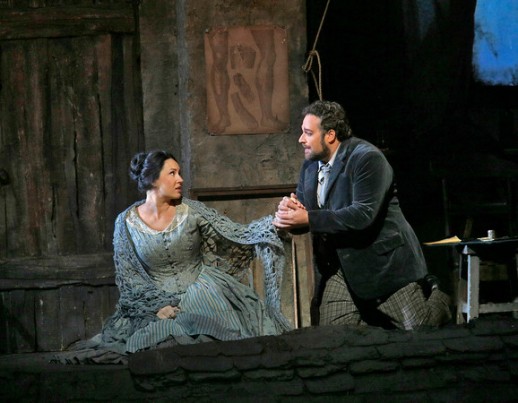
Another reason La Bohème remains such a popular opera for hardcore opera fans in NYC is that it’s one of the few operas at the Met that doesn’t abide by the much-loathed five-year plan. La Bohème is programmed based on availability, so you often get hotly-discussed singers who haven’t made it into the five-year-international circuit plan slotted to enter the garret. You also get many sopranos of a certain age given one or two pity performances. So yeah, a vehicle for new voices and old, almost-forgotten sopranos means there’s both excitement and nostalgia in many a Bohème night.
Tonight’s was Exhibit A for how slapdash casting often is for this opera. It was originally going to be Kristine Opolais and Ramón Vargas as Rodolfo and Mimi. Then Anna Netrebko walked out of a production of Manon Lescaut in Munich, and Opolais jetted off to Germany to replace her. So Sonya Yoncheva, who was slated to be the Musettas in the January cast, got pulled out of Musetta to sub for Marina “My Voice is Shot” Poplavskaya in La Traviata and made her role debut as Mimi in the November/December run of Bohème. All this less than a month after having a baby. Oh, and Vargas also canceled and so Bryan Hymel (who sang the September run of Bohème) flew back from Chicago to sub for Vargas. Forget the five-year plan, this Bohème was like the five-day plan.
The good news is the role of Mimi fits Yoncheva like a warm winter muff (or pretty pink bonnet). Her voice is warm and enveloping and projects beautifully throughout the auditorium. She timbre is the kind that never fails to enchant audiences—soft-grained and dusky with a flickering vibrato to give the voice a vibrant sheen. She phrases with delicacy but her voice can soar over the orchestra at opportune moments. She also looks perfect for the part, with the raven hair and pale skin and sad downcast eyes. In the last act she wore her hair in this perfect half-up-half-down-do that allowed curls of black hair to frame her face beautifully as she expired. Her Mimi is on the ladylike side—she doesn’t make a big show of blowing out the candle or sashaying her skirt. But it’s a perfectly charming performance and an A+++ voice. I can’t wait to see her in Traviata.
Hymel was a more awkward fit for Rodolfo. This was my first time hearing him live. I had been under the impression that his voice was a big, exciting one with lots of squillo and huge ringing top notes. Um … not the case. In fact, I was shocked at how tiny his voice sounded at first. The middle is basically a cold, colorless, narrow tube of sound that projects poorly. This has nothing to do with actual voice size—onstage with him were voices of varying sizes and colors, but they all had a healthy projection into the auditorium. Hymel’s sound projection tended to die somewhere between the garret roof and the prompter’s box. His top is undeniably more exciting, but I was also surprised that for someone who can sing the 16 high C’s of Arnold in Guillaume Tell, he took two standard transpositions—one in “Che gelida manina,” and another one in “O soave fanciulla,” presumably so he could go for the unwritten high option, which in this case became a B instead of a C. I didn’t mind those transpositions, but I was surprised again that someone known for his high C’s would transpose down. His portrayal of Rodolfo was stiff and humorless. He doesn’t have the joie de vivre. I’m just going to write this off as a very poor fit between singer and role, as Hymel’s gotten raves from too many people whose judgment I trust.
Myrtò Papatanasiu is a soprano whose work I admired in several videos, including the Herheim Rusalka. But her performance as Musetta was so bad that it really couldn’t be written off as the wrong role. First the positives: she’s an attractive woman. But the visceral reaction to her voice is along the lines of “wow that voice fell off the ugly tree and hit every branch on the way down.” How do I cringe from thee? Let me count the ways. There’s that shrill, whitish top, and the hollow, throaty, old-lady quavery middle, and the hard, charmless delivery, and finally her interpretation of Musetta as a complete shrew. I now have two “Oh.My.God.” singers. There’s Jonas “Oh.My.God” Kaufmann, and there’s Myrto “Oh.My.God” Panatanasiu. One turned me into a crying fangirl, the other turned me into… a crying girl.
The other males were okay. David Bizic (Marcello) was more than okay last year as Albert, but then again Marcello isn’t that showy of a role. Matthew Rose (Colline) doesn’t make much of “Vecchia zimarra” and John del Carlo hams up Benoit/Alcindoro even more than usual. Conductor Riccardo Frizza did the impossible and made the evergreen Puccini score sound alternately plodding and charmless with his unfocused conducting. He often allowed the orchestra to meander and then cut off phrases with the brusqueness of a nun rapping a disobedient child with a ruler.
Despite Yoncheva’s opulent voice, this Bohème never really warmed up. The Zeffirelli classic usually gets happy cheers after each act and a warm final ovation. But tonight, only golf claps. Let’s hope the garret is a little warmer in January when I make yet another trip to see a totally different cast.
Photo: Ken Howard/Metropolitan Opera














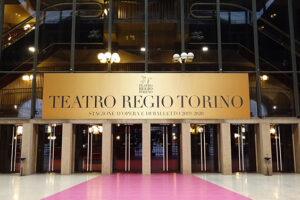
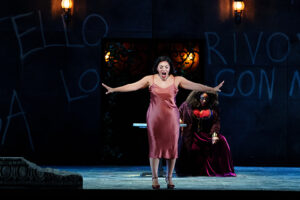
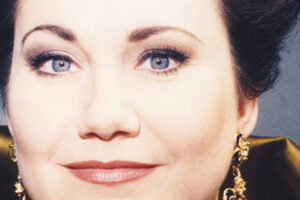
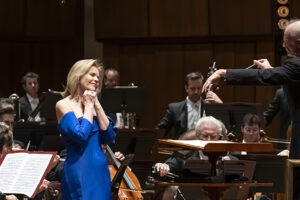






Comments